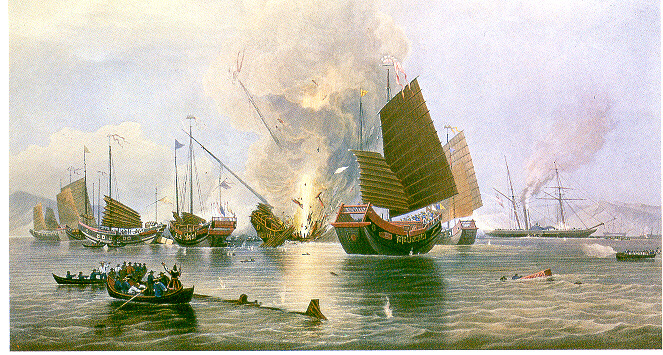Second Opium War (1856-1860)
Since the Chinese authorities were reluctant to keep to the terms of the 1842 Treaty of Nanking, they tried to keep out as many as foreign merchants as possible. In Octover 1856 Chinese authorities in Guangzhou seized a vessel which was engaged in piracy. After registering this ship as British, the British governor in Hong Kong ordered warships to bombard Guangzhou. All in all the second Opium War started by joint army of the British and French, supported by the Americans and Russians. This led to even more unequal treaties.

